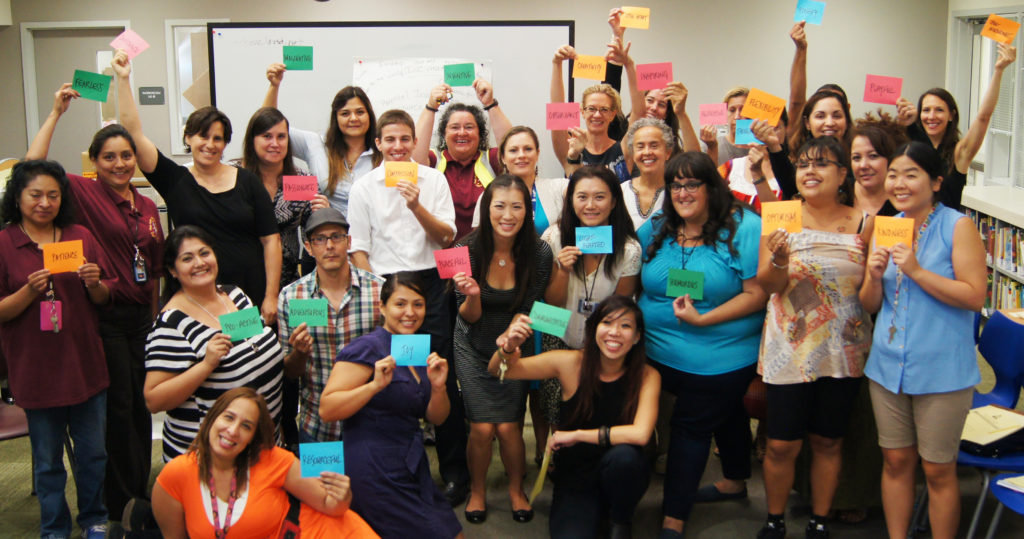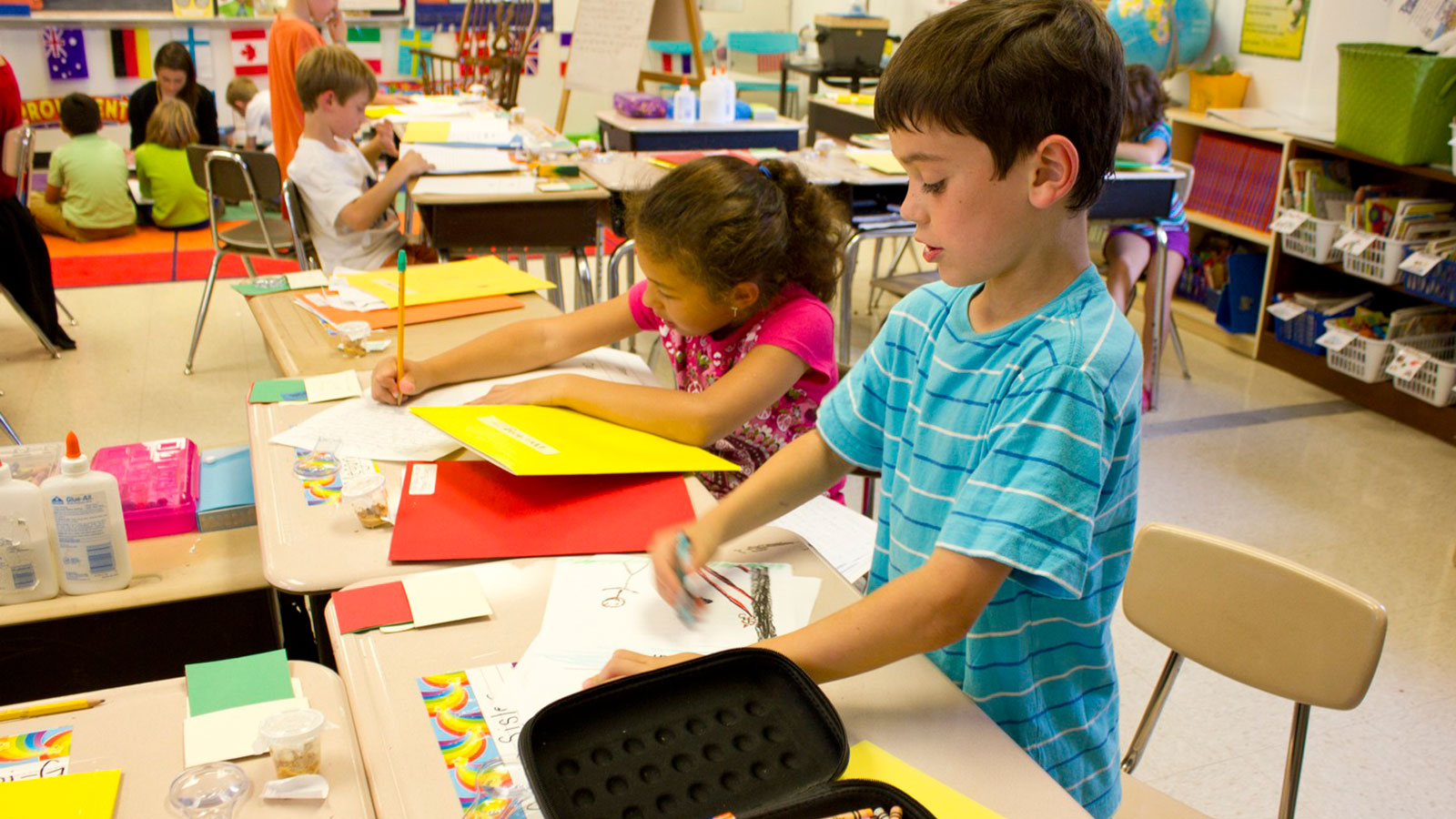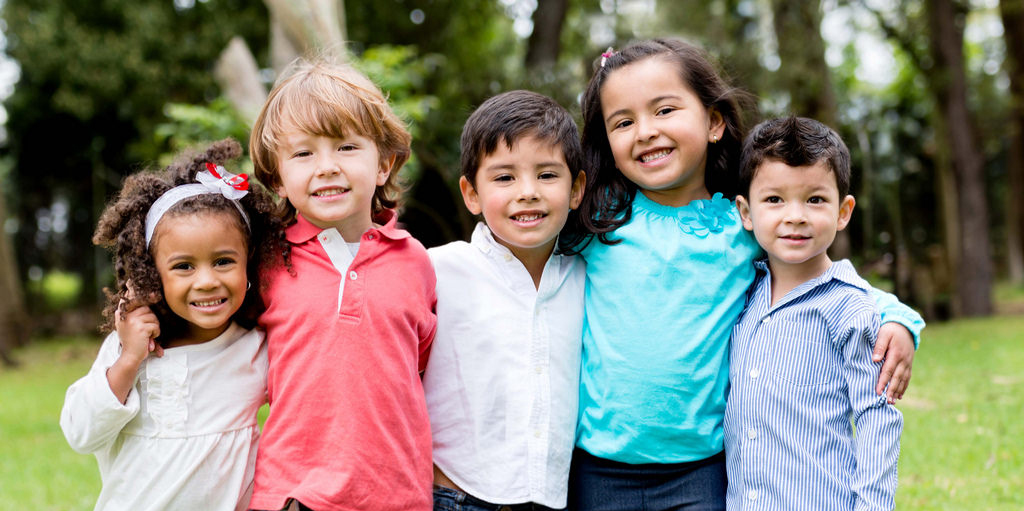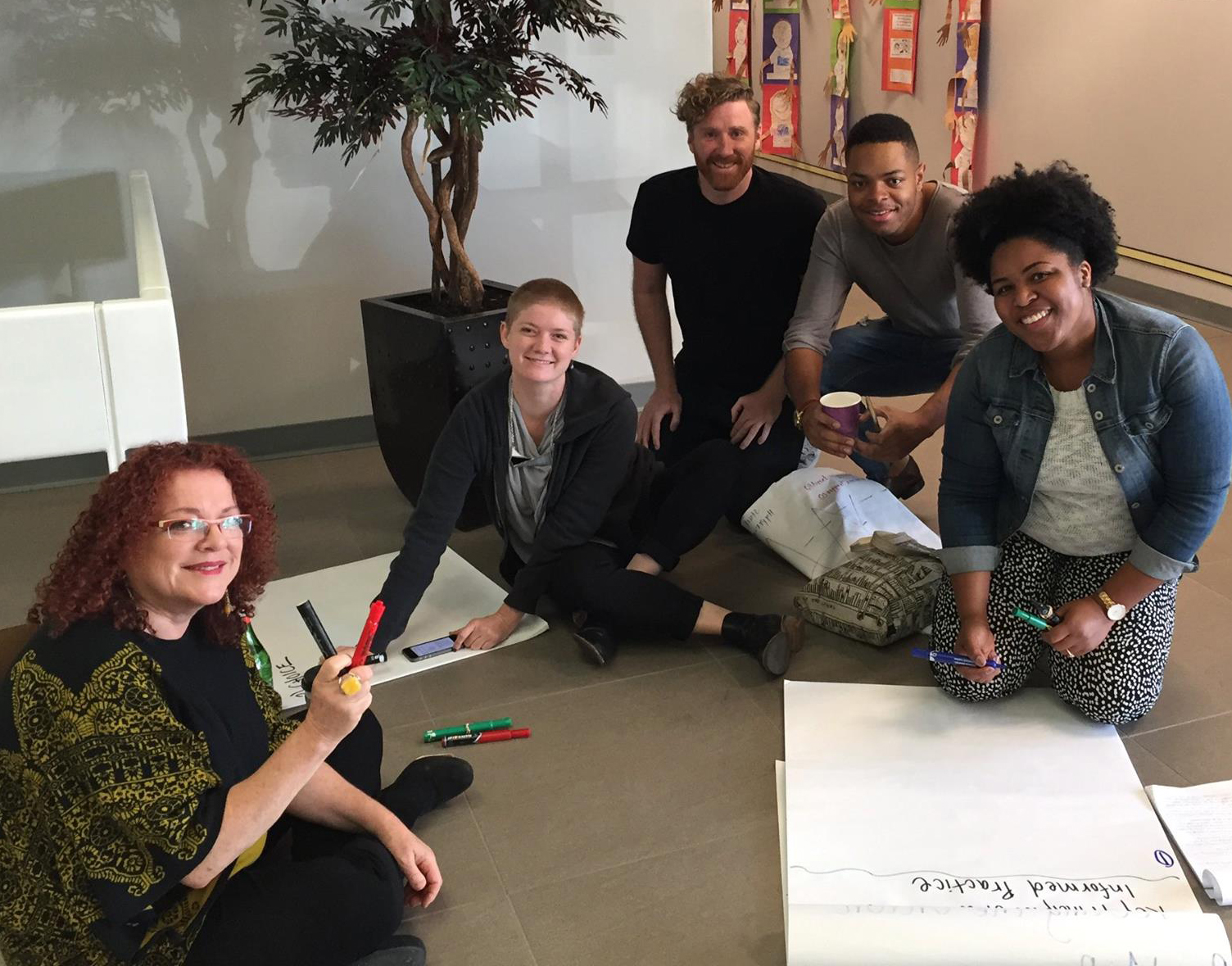
Trauma-Informed Schools
Echo and the Whole School Initiative has an ambitious goal: We are working with school staff, parents and students to create trauma-informed, nonviolent whole school communities. Taking lessons learned by the early pioneers of trauma-informed schools as well as findings from our own pilot work in this area, we have applied them to creating trauma-informed, nonviolent schools with an essential twist – shifting from the dominant to the nonviolent paradigm.
What do we mean by ‘trauma-informed’?
The recent scientific discoveries about the effects of trauma, especially childhood trauma, are revolutionizing the way we see health and human behavior. Childhood trauma occurs when a child experiences emotional or physical threat, but is powerless to escape. If this happens often enough, instead of being able to discharge the ‘fight, flight or freeze’ survival response, trauma survivors either get stuck in hypervigilance (which can manifest as high anxiety, disruptive behavior and rage) or constriction (‘shut-down’ or spacing out). Now that we understand that trauma lies at the root of many physical, mental and social problems, we are learning to ask, “What happened to you?” instead of “What’s wrong with you!”
School staff being able to recognize the outworkings of trauma and being trained in techniques to regulate the nervous system for both adult and child, even setting up ‘peace corners’ where children can practice emotional regulation, are important advances. Building social-emotional skills in children is now understood to be just as important as academic learning.
What do we mean by the ‘Dominant Paradigm’?
For all the importance of becoming trauma-informed, at Echo we believe that unless there is movement away from the dominant paradigm, which is characterized by punishment and rewards, judgments about ‘good’ and ‘bad’ behavior, and the emphasis on compliance instead of connection and compassion – a paradigm historically very prevalent in schools – we will continue to miss the mark. As a recent paper published by the New Haven Trauma Competency Group emphasizes, we need an increased “understanding of the importance of using relational healing for relational injury.”
What is the Nonviolent Paradigm and how does it relate to trauma?
The nonviolent child raising paradigm is relational. In parenting, education or any other realm, the nonviolent approach to child raising is rooted in an empathic, attuned connection between adult and child, resulting in what psychology calls ‘secure attachment’. The role of attachment in childhood trauma has been highlighted in the work of Dr. Bessel van der Kolk of the Trauma Center and other leaders in the field of ‘Developmental Trauma’. Whatever the trauma experienced, the most damaging aspect is what it does to the relationship between a child and their caregiver. In fact, if there is a disruption in the attachment between caregiver and child, this is the most harmful type of trauma that can ever be experienced because it essentially robs us of our humanness, our ability to connect, our sense of being worthy of love, our belief that the world is a physically or emotionally safe place, and any hope that things will change.
We don’t just see this in the lives of those who have been severely neglected and abused as children; we also see it in children who have witnessed domestic violence, who live in violent neighborhoods, who have been separated from birth parents by foster care or adoption, or whose parents are unresponsive to the child’s need for love and attention because of high levels of stress, mental illness, drugs and alcohol, immaturity or poor parenting skills. The need for connection is linked to basic survival, so that a child will suffer adverse physical and mental effects if deprived of it. Yet, in the name of ‘discipline’ we continue to use parenting and classroom management practices that disconnect and are the opposite of nurturing. We are told to use tokens and sticker charts to reward desired behaviors but fail to address the underlying needs and feelings, the trauma responses and symptoms, or the coping strategies developed as a result of trauma that are compelling a child to act in a certain way – behaviors that when forced by trauma into survival mode, a child can no more control than you can control a sneeze. Why do we do these things? Probably because having been raised in the dominant paradigm it is all we know. But what if there were another way?
The Paradigm Shift
The Echo model of trauma-informed training shifts from a ‘power-over’ approach to a more curious, compassionate way of viewing behavior. We see behavior as communication of unmet needs, feelings, or the symptoms of trauma. It sounds simple, but once a parent or teacher is triggered by the child’s behavior into the survival part of the brain, the higher parts of the brain are not online and the adult loses the capacity for reflection. It doesn’t just take regulation techniques to remedy the situation; it takes a willingness to not inflict on anyone else the trauma we ourselves have suffered at the hands of parents, teachers, authority figures, and society as a whole through racism, sexism, and other forms of bias. To come to that willingness, we must be ready to abandon our whole system of belief that is based on judgment, punishment, and the need for safety through power. Whether a parent, teacher or administrator this is daunting! It is what we call at Echo ‘the paradigm shift.’

“Trauma-sensitive schools also benefit students who have not experienced traumatic events. All students benefit from safety and positive connections to school. An understanding of trauma’s impact on learning can rally educators around their students’ shared need for safety and connection to the school community. This calls for a whole-school approach that is inclusive of all, while recognizing that there are those who are especially vulnerable.”
– Trauma and Learning Policy Initiative “Creating & Advocating for Trauma Sensitive Schools”

Trauma-Informed Compassionate Classrooms
How to Create Optimum Conditions for Learning
This training provides two days of practical support for K-12 teachers with information about the brain, trauma and social emotional learning.
Are you overwhelmed with the demands of meeting academic standards? We now know that social emotional skills are as important as academic achievement and yet maybe you have a hard time just getting students to sit and listen! Young people learn when they feel safe and cared for, but perhaps the kind of supportive relationships you dreamed of when you entered the profession, inspired by the idea of shaping and molding young lives, seems a far-off reality given the degree of trauma – childhood, intergenerational and community – that your students bring to the classroom.

Trauma-Informed Early Childhood Education
Echo brings you a one-day training for early childhood educators with information about the brain, trauma and social emotional learning.
Working with young children is an incredibly important job. This special workshop offers critical information about the brain, trauma, and strategies to promote social and emotional growth. It also offers early childhood professionals opportunities to reflect on their practice and build the safe, stable nurturing connections children need to thrive.

We are happy to tailor a training to fit the professional development needs of your agency or school. However, we have learned that just attending a training is not enough when trying to create a paradigm shift. There is no step-by-step manual for undoing years of conditioning and the effects of trauma. Becoming trauma-informed is a practice, and as such participants need the reinforcement of repetition and guidance over time.
For this reason, Echo has developed a ‘train + coach’ model where we complement training with small group coaching. Our skilled trainers can also offer individualized observation and feedback for your staff.
The Train + Coach model is something we have successfully rolled out with LAUSD School Mental Health Psychiatric Social Workers, Teach for America teachers and in our pilot school, Sally Ride Elementary.
Ask us how we can help your school, district, or organization become trauma-informed and develop the safe, stable, nurturing relationships with children so they may enjoy lifelong health and learning.
Contact us at contracts@echotraining.org or (213) 484-6676
This is a text block. Click the edit button to change this text.
